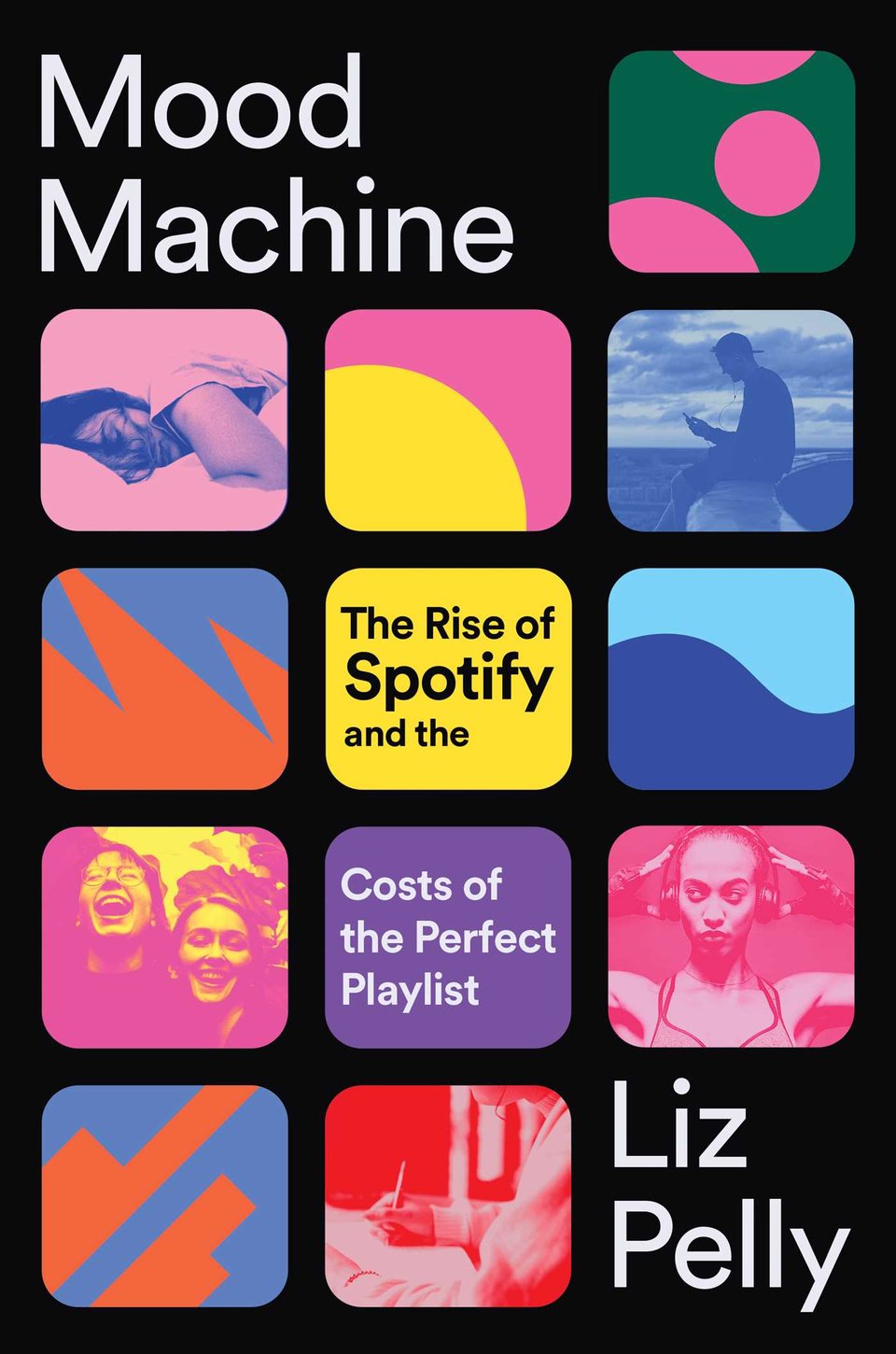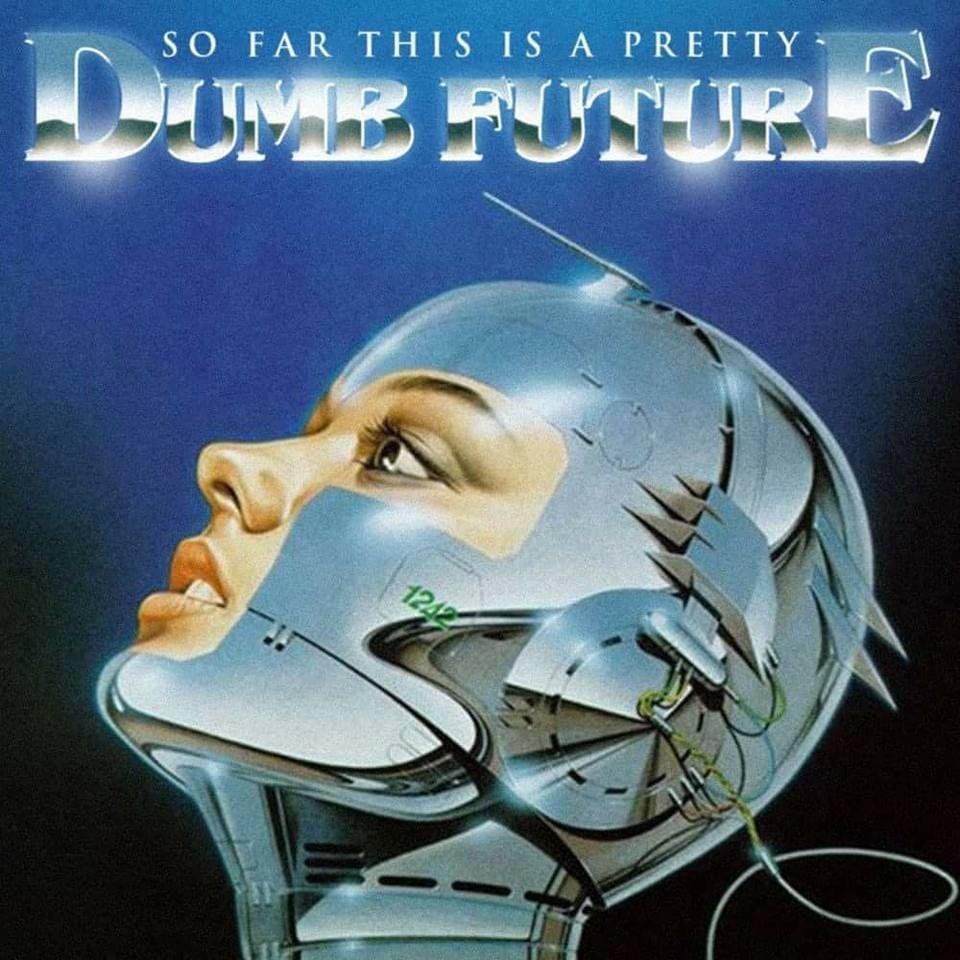Spotify is streaming-enabled grift
“Music just inoffensive enough not to get shut off.”
“They’re not a music company. They’re a time filler for boredom.”
“Trash audio content made from generic stems.”
“Streaming-enabled grift.”
These quotes are from Liz Pelly’s fabulous new book Mood Machine: The Rise of Spotify and the Costs of the Perfect Playlist. I spoke with Liz about the book on Techtonic this week. (To listen, go to the episode page and click “Pop-up player.”)

Mood Machine is impressive: it’s the definitive account of Spotify’s history, how the company currently operates, and its effects on music and culture.
This is an important story, and it’s not pretty. If there’s one word to sum up Spotify’s business model, it’s exploitation. Working musicians are paid less and less, as Spotify eternally searches for ways to wring out just a bit more growth. (In a recent change to the royalty structure, over 85% of tracks on Spotify were demonetized, leaving creators with exactly zero in possible payments. Of the tracks that are still monetized, most get paid almost zero: as Damon Krukowski recently posted, it’s “typically 15% of 1/3 a penny per stream (or $0.00045 a stream), less recoupable expenses.”)
And users are exploited, too. From the pervasive surveillance on the Spotify app (“you should be under the assumption that any interaction you have within the Spotify app is going to be recorded,” says a former Spotify engineer) to the deceptive presentation of low-quality tracks in users’ feeds thanks to “digital payola” – users are being watched, tracked, deceived, and manipulated throughout their Spotify experience.
And to what end? Is Spotify using its leadership position in music streaming to “level the playing field,” and offer a hand to aspiring musicians and bands? No. Just the opposite, in fact: from the very beginning the company has partnered with the oligopoly of the three major labels – Universal, Sony, and Warner – which ensure that the lion’s share of promotion, and royalties, go to major-label artists.
Popular music, at least by Spotify’s measurements, is itself suffering. “Trash audio content” and “music just inoffensive enough,” as mentioned above, refer to Spotify’s embrace of generic, essentially stock-library music glop that it licenses at rock-bottom rates and then presents to users under the made-up names of “ghost artists” who don’t really exist. (Liz explains this arrangement in our interview.) It seems only a matter of time before Spotify presents genAI slop, which can be generated at zero marginal cost, as the new frontier in pop music.
Who benefits from this flood of what at best I’d call mediocrity? Not the users, who are being trained to “lean back” and listen to slop; and not the musicians, who are being nudged toward being social-media influencers, benefiting Spotify’s engagement numbers, rather than developing their artistic vision. No, it’s a different class of people who benefit from Spotify. As Liz writes:
These were the people for whom streaming was made by and for: major label execs, consultants, ad men, and venture capitalists, all working to get their own share of the pie.
The two people getting rewarded the most are the cofounders of Spotify, Daniel Ek and Martin Lorentzon. Ek now has a net worth of over $4 billion. Lorentzon is worth over $7 billion. There’s a telling detail near the end of Mood Machine as Liz describes a profile of Lorentzon in King, a men’s magazine in Sweden:
The King interviewer [asked] if he [Lorentzon] had given any thought to what might happen to his money after he dies. His reply: “I don’t want to die.” He then clarified that he does believe in death, but that he aims to live until he is 120, under guidance from longevity experts.
I read that and thought: Ah. So this is the end result of all of the striving, all of the payola, the manipulations, the empty promises, the squeezing of artists, the complete fealty to growth-at-any-cost: finally, it’s all about self-preservation. One man finally has his $7 billion and, according to this profile, he fantasizes about what? Taking care of himself just a bit longer.
But maybe this is unfair. Perhaps the King profile overlooked what’s actually happening, that Ek and Lorentzon are quietly working on using their hoard, at long last, to create some good in the world. One can hope. Even in that best case, this is still an unjust arrangement – users deceived, artists impoverished, musical culture flattened and reduced to advertising library glop. We need something better than Spotify, just as we need something better than Facebook, Google, Amazon, and all the rest of the companies whose CEOs kissed the ring at the inauguration. We deserve so much better.
Liz’s book, and our interview, end with some hopeful news of green shoots breaking through the cracked earth. UMAW, or United Musicians and Allied Workers – cofounded by past Techtonic guest Damon Krukowski, who I mentioned above – is already making progress in advocating for basic reforms. And they’re not alone. (Read the details in Liz’s book.)
Until we get real reform, all the Big Tech companies – and, increasingly, their government partners – will continue to run roughshod over our rights, our hopes for a better society, even the idea of democracy itself.
I’ll give the last word to Kevin Erickson, director of the Future of Music Coalition. Liz Pelly quotes Erickson in Mood Machine as he gives the best distillation I’ve read recently of the challenge we face:
As Erickson puts it: “Unaccountable power is the problem wherever it pops up. It’s not about any particular technology. It’s concentrated, unaccountable private power.”
Let’s stick together, friends. Join my Creative Good community and we’ll figure out a way forward.

See past columns. And please join us.
Until next time,
-mark
Mark Hurst, founder, Creative Good
Email: mark@creativegood.com
Podcast/radio show: techtonic.fm
Follow me on Bluesky or Mastodon
P.S. You’re on an unpaid subscription. Please upgrade your subscription to show your support.